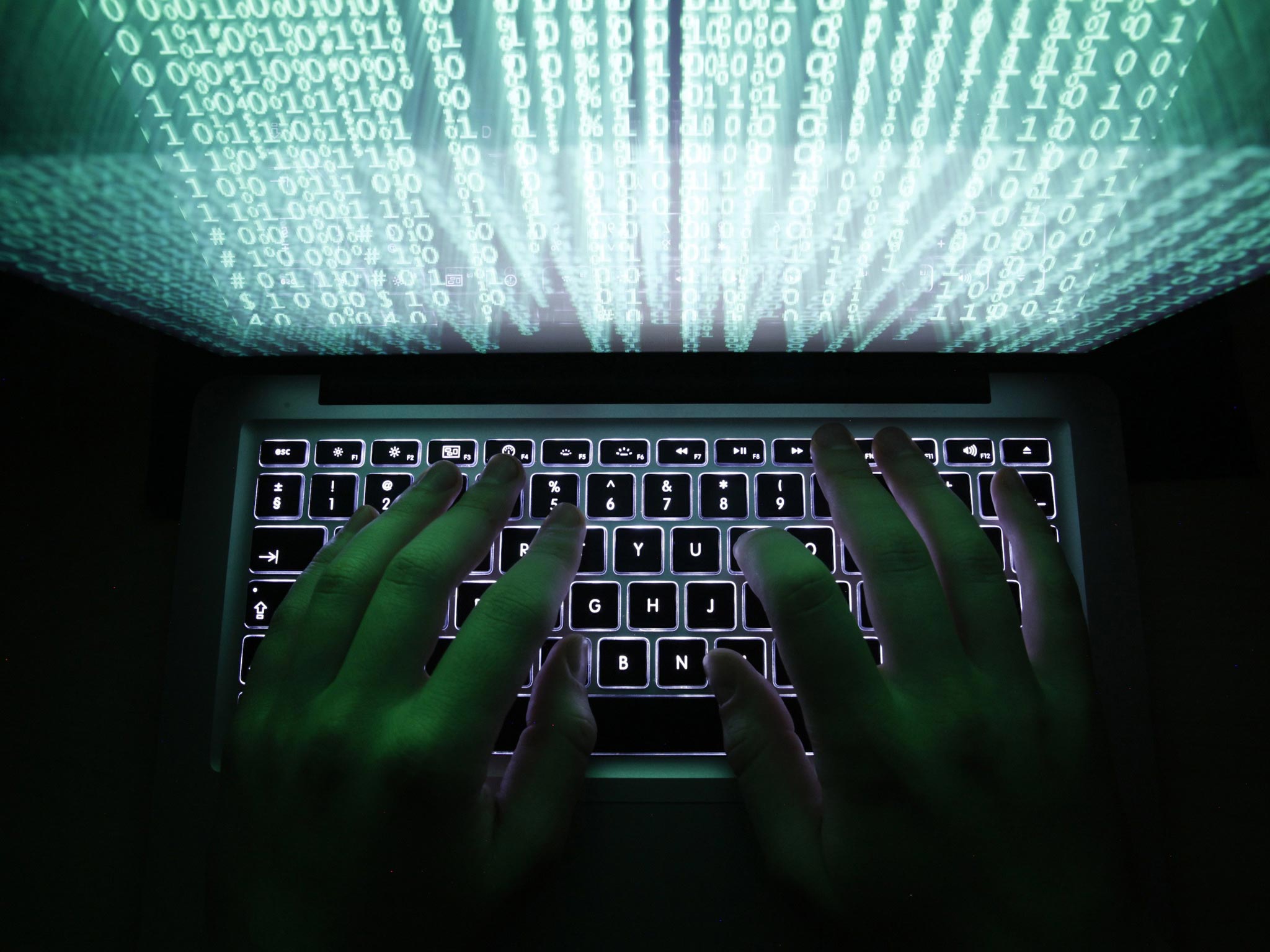British military facing modern-day ‘blitz’ with 60 cyber attacks a day
UK’s armed forces face around 1,800 cyber attacks per month, British military official warns

Your support helps us to tell the story
From reproductive rights to climate change to Big Tech, The Independent is on the ground when the story is developing. Whether it's investigating the financials of Elon Musk's pro-Trump PAC or producing our latest documentary, 'The A Word', which shines a light on the American women fighting for reproductive rights, we know how important it is to parse out the facts from the messaging.
At such a critical moment in US history, we need reporters on the ground. Your donation allows us to keep sending journalists to speak to both sides of the story.
The Independent is trusted by Americans across the entire political spectrum. And unlike many other quality news outlets, we choose not to lock Americans out of our reporting and analysis with paywalls. We believe quality journalism should be available to everyone, paid for by those who can afford it.
Your support makes all the difference.The British military is facing more than 60 cyber attacks a day in a modern day “blitz” in what has become the new and dangerous frontline of 21st Century warfare, one of Britain’s most senior commanders has revealed.
General Sir Patrick Sanders also gave a rare glimpse into the country’s offensive ability to take cyber conflict to the enemy, with the means to carry out operations which would “degrade, disrupt and destroy critical capabilities and infrastructure”.
The threat from adversaries was ever present and growing warned the General. “Cyber space has been a means for terrorist groups to push their propaganda, for Russians to interfere in our democratic processes” he said.
“It’s there for Chinese misinformation and IP theft, for Iranian support to terrorist groups and aggressive use of the COVID-19 pandemic as a cover for exploitation operations, to name a few.”
The UK’s armed forces face “around 1,800 per month or 60 a day” hostile cyber interference which require active intervention, while many others are dealt with by automatic defence systems. The figures, he stressed, were just those affecting the military and did not include attacks on civilian infrastructure or financial institutions also taking place on a daily basis.
Nato countries can call on others in the Alliance under Article 5 it treaty. Although that is yet to be activated by a member state, the UK has provided technical help to a number of allies facing Russian cyber aggression.
Speaking at Defence Digital Operations HQ, at MoD Corsham in Wiltshire, where the British government’s secret wartime bunker was situated, Gen Sanders said “If I'm going to use a war like metaphor, and I'll use one because it's the 80th anniversary of the Battle of Britain. So, if this was an air war, it would be the Blitz…
“The intensity and the frequency of the attacks are on the same scale and if we let too many so call bombers and their payloads through then it will sow the seeds of defeat. Not immediately, but slowly, insidiously, corrosively and inevitably.”
Gen Sanders, the chief of UK’s Strategic Command and the most senior commander on cyber, said he had been tasked by the Prime Minister to establish that this country becomes a “ leading, full-spectrum cyber power” with defensive and offensive armouries.
This “first of all means world class at defending the nation’s critical national information. Secondly it means being able to contest, to compete and to disrupt our adversaries projecting cyber effects at reach and scale” he stated.
The forthcoming ‘ Integrated Review’ into the UK’s defence, security and foreign policy is expected to sign-off major investment into offensive as well as defensive cyber operations. Dominic Cummings, the Prime Minister’s chief advisor who has given himself a key role in the Review, is said to be a keen supporter of developing cyber capabilities.
The Independent revealed in January that the government was in the final stages of setting up the National Cyber Force ( NCF) under the Ministry of Defence and GCHQ.
Offensive cyber action had been carried out on an ad-hoc basis against Isis in Syria and Iraq. Setting up the NCF has been delayed, say western officials, by distractions caused by uncertainties over Brexit and frequent changes of ministers and secretaries of state in the MoD.

Join our commenting forum
Join thought-provoking conversations, follow other Independent readers and see their replies
Comments